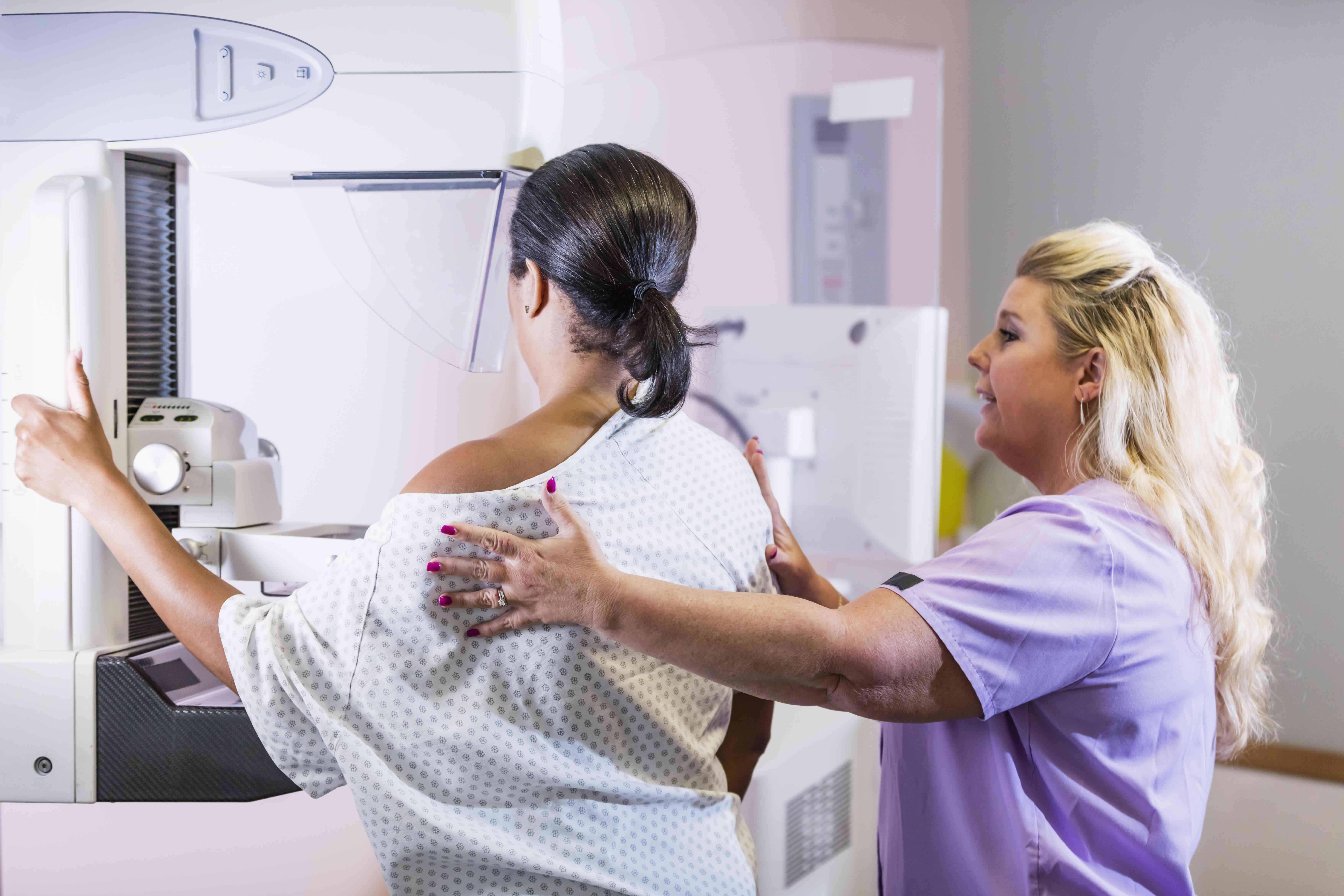Your Mammogram Results Revealed You Have Dense Breasts—Now What? Here's what to know about breast density, and what to do if you find out your breasts are dense

A U.S Food and Drug Administration regulation that has gone into effect will require all facilities that provide mammograms to inform people of their breast density levels, including whether they have dense breasts
- Per a new FDA regulation, all facilities that provide mammograms are now required to inform women of their breast density level after they get a mammogram.
- Women with dense breasts are more likely to develop breast cancer, and having denser breast tissue makes it harder to detect cancer on a mammogram.
- Having a conversation with your doctor is a good first step to take after you find out you have dense breasts, experts say.
All healthcare facilities in the United States that provide mammograms are now required to notify women of their breast density level.
Many states already have laws requiring all mammography facilities to do this, but in March 2023, the Food and Drug Administration announced that it would be mandated nationwide. That mandate went into effect last week, meaning that some women will soon learn for the first time that they have dense breast tissue.
“The FDA regulation now federally requires that mammogram reports provide an overall assessment of breast density classified into one of four categories from least dense to most dense,” Kimberly Feigin, MD, interim chief of the breast imaging service at Memorial Sloan Kettering Cancer Center, told Health.
“Additionally, patients will receive a paragraph explaining that dense tissue makes it harder to find breast cancer on a mammogram and also correlates with an increased risk of developing breast cancer,” Feigin said. (She added that the FDA didn’t provide any translations of the English version of the paragraph, which “is a problem.”)
Though experts believe arming women with the knowledge that they have dense breasts has the potential to save lives, that can only happen if people know the best way to make the most of the information. Here’s what experts recommend you do if you find out you have dense breasts.

kali9 / Getty Images
What Is Dense Breast Tissue?
Per the FDA’s new regulation, people who get mammograms will find out which of the following categories of breast density they fall into:
A: Almost entirely fatty
B: Scattered areas of fibroglandular density
C: Heterogeneously dense
D: Extremely dense
Women with breast tissue classified as C or D have dense breasts, Mediget Teshome, MD, MPH, chief of breast surgery and director of breast health at UCLA Health, told Health.
“Dense breast tissue is normal,” Margolies said. “It’s very common.”
In the U.S., mammograms are recommended yearly or bi-yearly for people aged 40 to 74. Nearly half of women 40 and older who get mammograms have dense breasts.
This means that their breast tissue is made of relatively high amounts of fibrous connective tissue and glandular tissue and includes low amounts of fatty tissue, which is the third type.
It is more difficult to find breast cancer on mammogram results of women with dense breast tissue, Margolies explained, because both dense breast tissue and breast cancer show up white on the results, whereas fatty tissue is gray. It is easier to spot white on gray than white on white, which is why some women with dense breast tissue may need extra breast cancer screenings outside of mammograms.
Additionally, “breast density has been identified as a risk factor for breast cancer,” Teshome said, though researchers don't know why that's the case.
However, Teshome added, “It is important to know that having dense breasts does not increase the chance of dying from breast cancer.”
What To Do If You Find Out You Have Dense Breasts
“If you find out that you have dense breast tissue, it is important to discuss [your care plan] with your doctor,” Teshome said. “Your doctor will be able to provide a risk assessment and recommendations regarding if further breast imaging is recommended for you.”
As part of this assessment, your doctor may ask about your family history of breast cancer, Margolies said. Other factors to consider when making an individualized plan for someone with dense breast tissue include the “amount of time and effort and financial resources they would like to utilize for breast cancer screening,” she added.
Not all insurance plans—including Medicare—cover extra, recommended screenings, she added.
Still, Margolies said people with dense breasts may opt to try a breast ultrasound or breast magnetic resonance imaging, or MRI, which can help doctors detect breast cancer.
“Ultrasound is much less expensive and much more readily available, but it doesn’t find as many breast cancers as breast MRI does,” Margolies added.
Living With Breast Cancer During and After Treatment 5 Lesser-Known Breast Cancer Symptoms—Because a Lump Isn't the Only SignThis story originally appeared on: Health News - Author:Maggie O'Neill


















